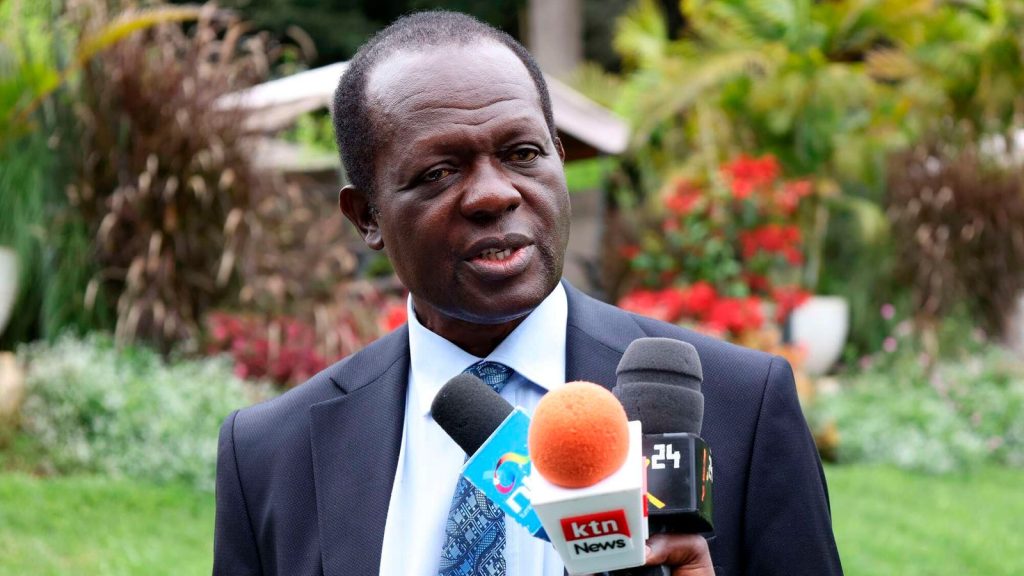The Judicial Service Commission (JSC) has cautioned against public discussions on the ongoing legal battle between Dari Limited and the East African Development Bank (EADB), urging all parties to allow the courts to handle the matter.
In a statement, the JSC emphasized that the case remains before competent courts and should not be litigated in the media or on social platforms. The commission cited the sub judice rule, which prevents public discussions on ongoing cases to uphold the rule of law and the due administration of justice.
The warning follows recent comments made by former Cabinet Secretary Raphael Tuju during a radio interview, in which he criticized the judiciary’s handling of the case. The Judiciary termed his remarks as misleading and reiterated the need for responsible reporting.
The dispute between Dari Limited and EADB has played out in courts across different jurisdictions. The case originated in the High Court of Justice, Business and Property Courts of England and Wales, which ruled in favor of EADB on June 19, 2019, ordering Dari Limited and its guarantors to settle outstanding claims.
EADB then sought enforcement of the UK judgment in Kenya, leading to a High Court ruling on January 7, 2020, recognizing and registering the judgment. Dari Limited challenged the decision but suffered setbacks in subsequent legal proceedings. The High Court dismissed its appeal on February 13, 2020, and the Court of Appeal upheld the ruling on April 20, 2023.
Dari Limited escalated the matter to the Supreme Court of Kenya, where it also faced challenges. The company later filed a complaint with the JSC, alleging bias among judges. This led to the recusal of the Supreme Court bench, effectively leaving the Court of Appeal’s decision in place. Despite these rulings, Dari Limited continued to seek legal interventions, including a failed attempt in September 2024 to block EADB’s enforcement actions through the High Court.
Amid the legal battle, EADB has dismissed allegations made against its lending operations. In a statement, the bank rejected claims aired during a live radio talk show on March 24, 2025, saying its loan facilities adhere to strict governance principles across its four member states.
“All loan facilities advanced by the bank to its customers are subjected to rigorous processes without favoritism to individuals or institutions based on rank or profile,” EADB stated.
The bank declined to comment further, citing ongoing court proceedings but expressed confidence that the facts, as presented in court, would stand. It also urged the media to uphold journalistic integrity by verifying claims made about its operations.
The JSC’s warning comes after an open letter from Tuju to Chief Justice Martha Koome, in which he accused the Supreme Court of bias and judicial misconduct. Dated March 21, 2025, the letter claims that recent rulings by the Supreme Court favor financial institutions at the expense of justice.
Tuju, who is involved in a high-profile land dispute in Karen, argued that the court’s decisions enable banks to auction his property without following proper legal procedures. He further alleged that some Supreme Court judges have engaged in unethical conduct, including public drunkenness, raising concerns about their professionalism.
“The law cannot be the foundation of morality; it is the other way around, your Honour. Morality is the foundation of a good law,” Tuju wrote.
His remarks have sparked debate, with growing calls for the removal of the Supreme Court bench. However, the judiciary has remained firm, stating that all legal matters should be handled within established court processes.
Email your news TIPS to Editor@Kahawatungu.com — this is our only official communication channel


